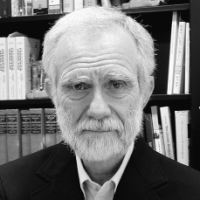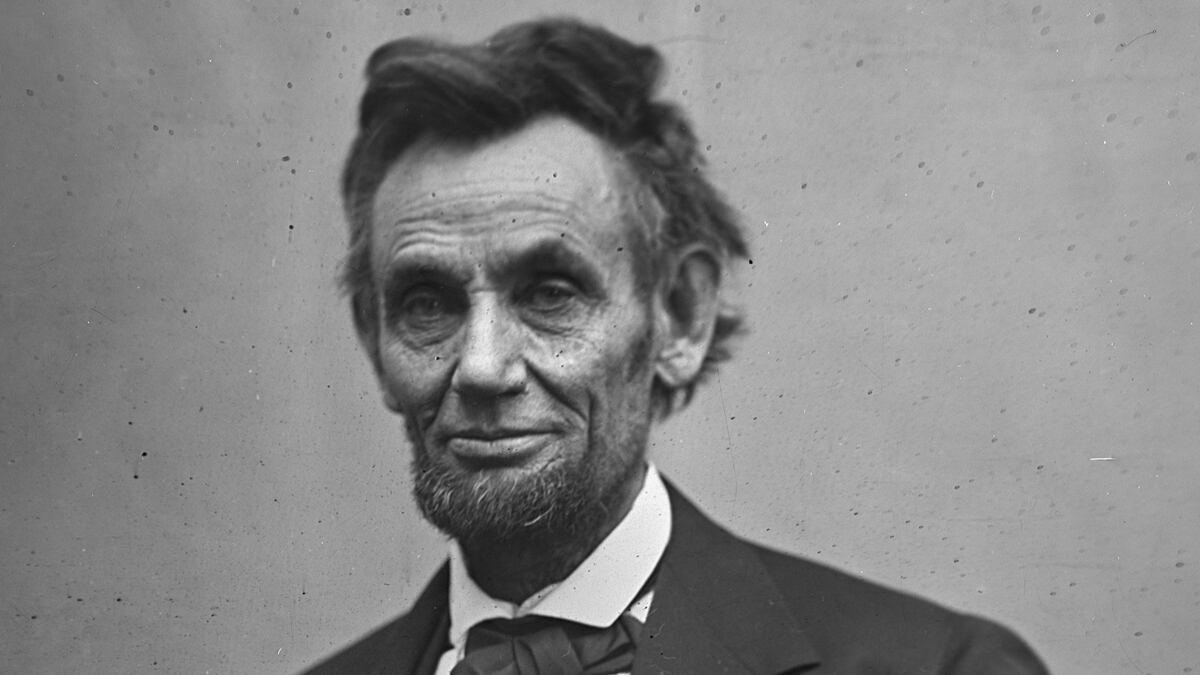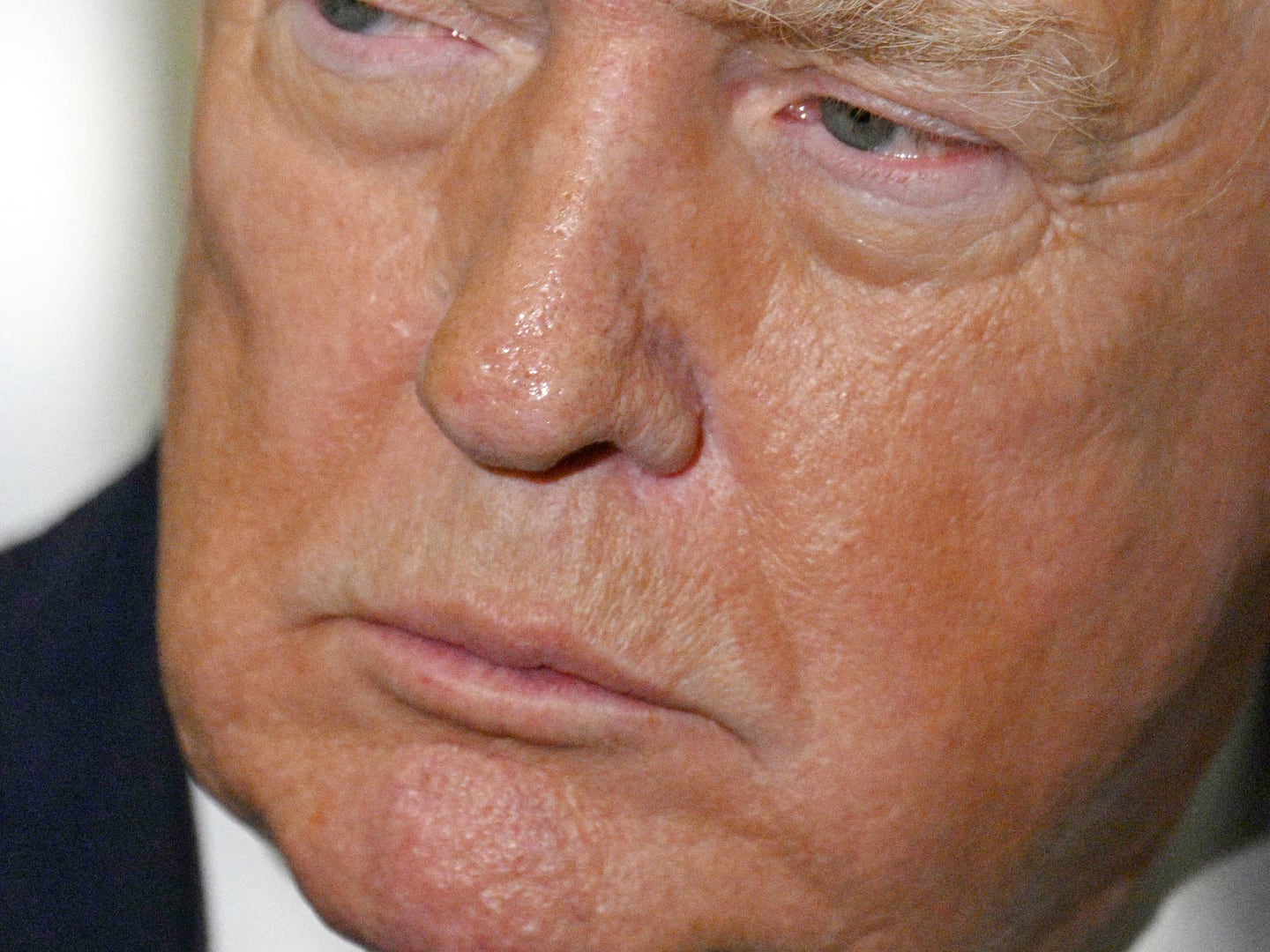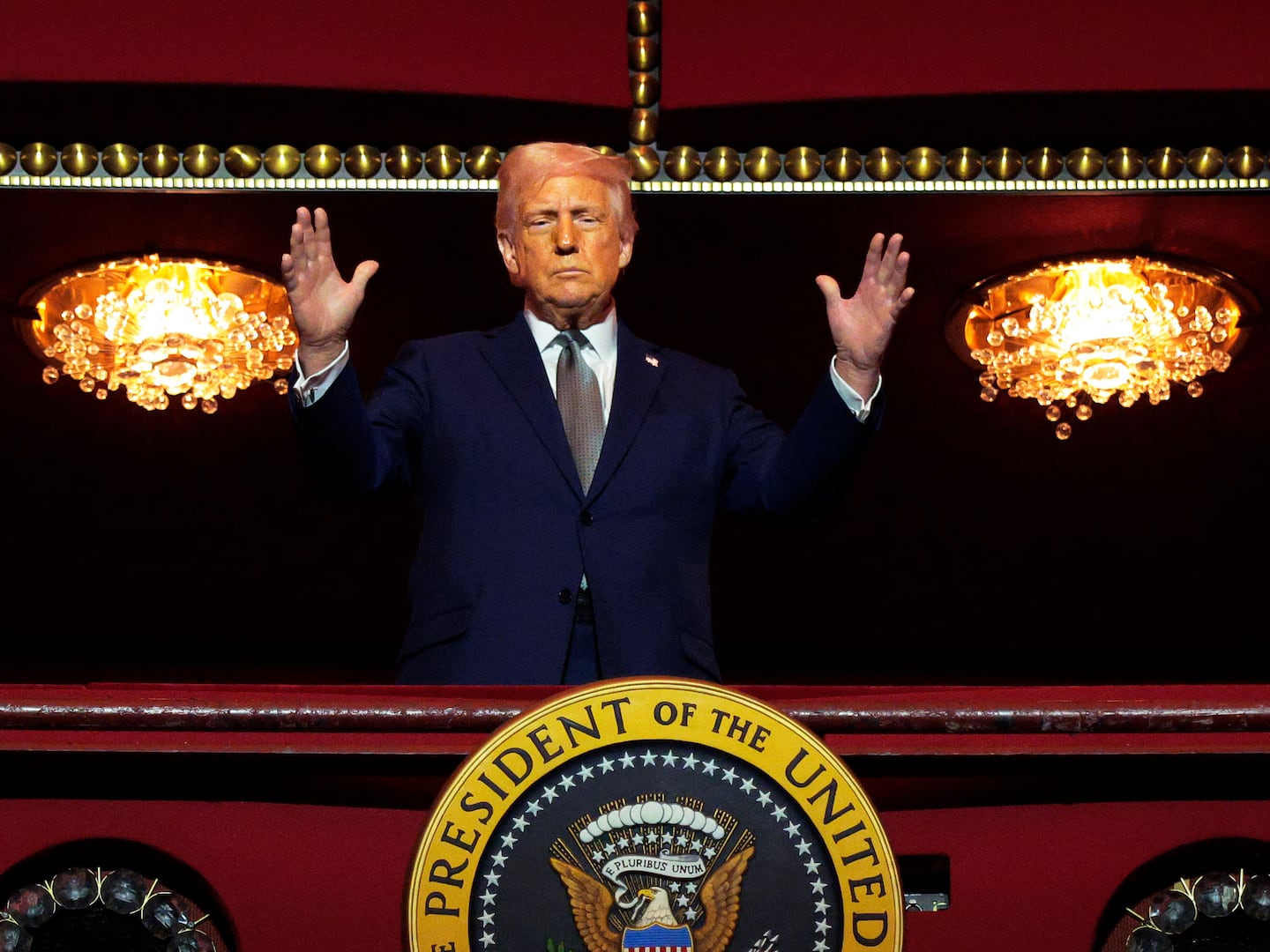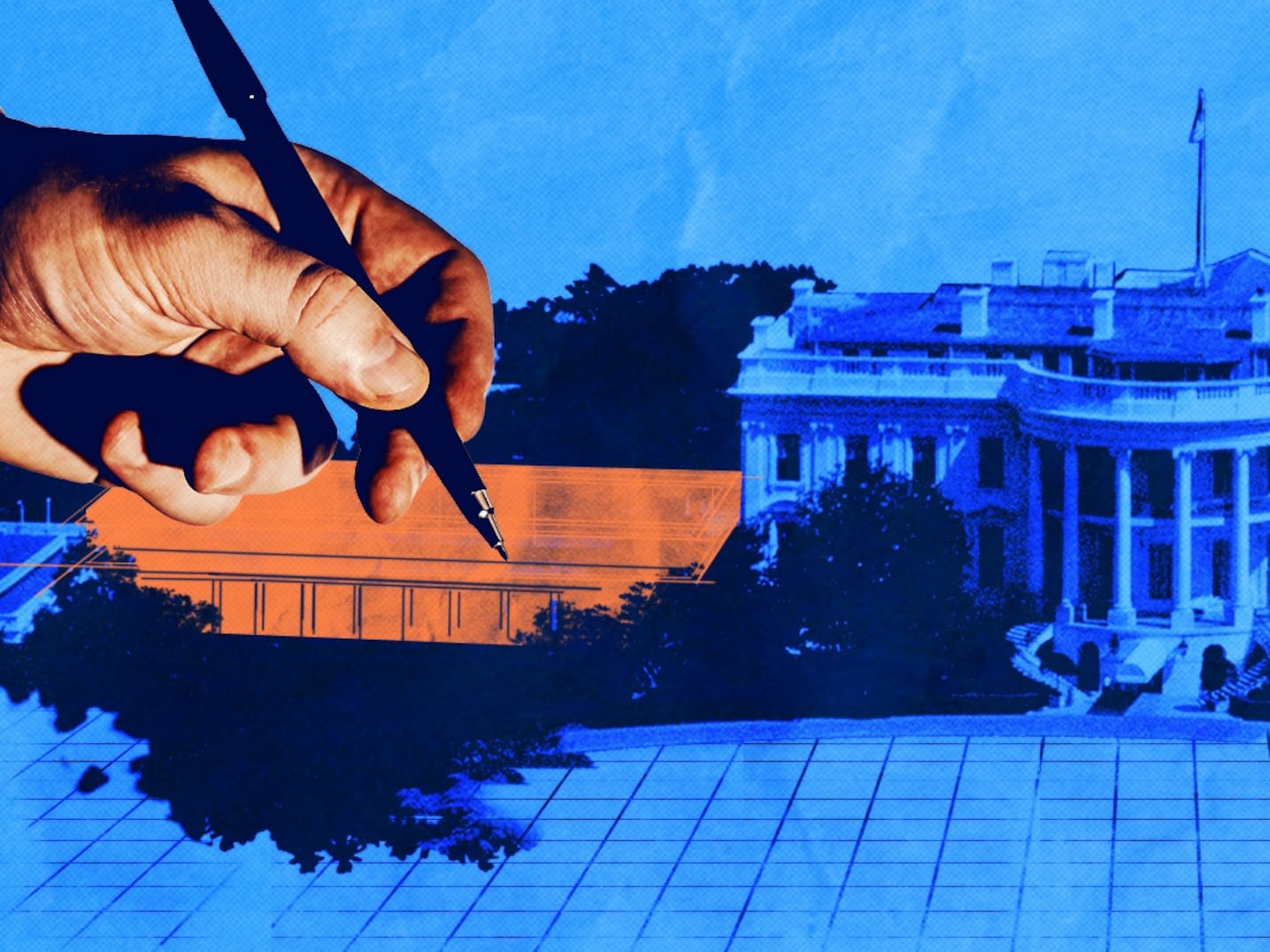Because Abraham Lincoln successfully presided over a desperate effort to keep the United States united and simultaneously engineered the demise of slavery, there is overwhelming agreement in our own time that he was a great American president. That he was also a great communicator would seem to be a common presumption, though his modern admirers are less certain about the evidence for that. Wasn’t he known as a great speaker? Didn’t his performances in the legendary debates against Stephen A. Douglas catapult him to national status? Wasn’t his Cooper Union address crucial in positioning him as a leading candidate for the presidency? And didn’t some of his speeches as president, like the Gettysburg Address and the second inaugural, inspire and thus help to preserve the nation?

Well, not exactly. Lincoln’s rise to power was indeed facilitated by the power of his oratory. But, as president, he deliberately limited himself to a very small handful of public speeches, and the address at Gettysburg, as well as the second inaugural, became widely admired and sources of national inspiration only decades after their delivery. Nonetheless, the presumption that Lincoln was a great communicator is historically correct, even if how this might translate into a modern context is far from clear.
Part of the difficulty is that his modern admirers tend to be as much, if not more, interested in what Lincoln might do in their milieu as in how he actually operated in his own. “How might Lincoln cope with the ‘sound bite’ culture of TV news?” they ask. “How would his humor serve him as a guest of Jay Leno or Jon Stewart?” “Would Lincoln talk with Oprah about the troubles of his boyhood and early manhood?” Provocative questions like these not only invite but demand speculation. But in order to speculate about Lincoln the communicator in a modern setting, it is necessary to start with a sense of what the historical Lincoln was like, what he thought about communication issues, and how he actually performed.
Unfortunately, the more one knows about Lincoln, the more problematic the hypothetical questions become. Contrary to what one might expect from a man who had built his reputation in politics almost exclusively as a speaker, Lincoln’s policy as president was to avoid the public rostrum, and the exceptions to this rule were few. Perhaps even more stringently followed was his policy against speaking in public without a prepared text. This rule of his was both unusual and unpopular, for it meant he was constantly disappointing groups that turned out to pay homage to him or demonstrate their support and hoped to hear a few words in return. But Lincoln had his reasons, which he explained at least partially to a crowd of serenaders at Gettysburg on the night before his famous address. In response to their predictable cries for a speech, he explained that he had no speech to give and would therefore have to decline. “In my position it is sometimes important that I should not say foolish things,” Lincoln said. A wag in the crowd shouted, “If you can help it,” to which Lincoln replied, “It very often happens that the only way to help it is to say nothing at all.”
This is precisely what he did on this and like occasions. In addition, Lincoln’s closest friends testified that for all of his folksy openhandedness and affability, he was an unusually reticent, essentially secretive man where his private life and personal feelings were concerned, sure to deflect any inquiries into such matters. And just here is the difficulty. To suppose that the super reticent Lincoln would open up to Oprah or that Honest Abe would appear with Stephen Colbert to banter about “truthiness” are both engaging prospects, but both require that we throw the historical Lincoln out the window.
A willingness to change the historical equation by positing a fictitious 21st-century Lincoln indicates that the object is less enlightenment than entertainment, which is why most historians shy away from it. Not that there is anything wrong with entertainment.
Lincoln’s high place in the national pantheon has made him a perennial subject of American humor, and probably always will. The comedian Bob Newhart, for example, succeeded brilliantly with a famous sketch in which Lincoln’s familiar style of dress and personal eccentricities were crafted by a press agent using modern methods. Much of Newhart’s humor revolves around the press agent’s frustration in attempting to pass off a witless bumbler as an authentic statesman, which is summed up in a line about changes his client wants to make in the Gettysburg Address: “Abe, do the speech the way Charlie wrote it, would you?”
Instead, suppose, in the hope of enlightenment, we reverse the historical polarity and ask what Lincoln’s actual performance as a political communicator as president has to tell us, if anything, about the contemporary media and the way modern politicians currently use it.
What might we learn from this exercise?
To begin with, some modern forms of communication were already in operation in Lincoln’s day, such as newspapers. Far more limited in scope and circulation than their modern counterparts, they were, nonetheless, even more closely tied to politics and very often owed their existence to a political party or partisan cause. As a young man breaking into politics in the 1830s, Lincoln wrote scores of editorials for the local Whig newspaper, a practice that he seems to have continued throughout his pre-presidential career. Most of these efforts were either unsigned or pseudonymous and therefore difficult to identify, though the evidence of this activity is clear enough. As an office seeker and party publicist, Lincoln certainly knew how to plant stories and solicit editorial support from newspaper editors. It is perhaps instructive that his private papers include fragments of unpublished articles he worked on in the months before his election to the presidency.

And as president, he cultivated newspaper editors and journalists, allowing them access to the White House and other favors, fully expecting favorable treatment in return. In these respects, Lincoln was perhaps as much involved with the media as any of his modern counterparts, always keeping in mind that the “media” of his day were almost exclusively newspaper editors and reporters.
One of the features of American political life that has remained fairly constant over time and that offers opportunities for interesting and sometimes arresting comparisons is every president’s need to come to terms with public opinion. So much is made in our own time of scientifically designed public opinion polls, especially in election years, that one might be tempted to assume that in Lincoln’s day, long before such tools were available, politicians paid less heed to public opinion.
With Lincoln, at least, we can be sure that this was not the case. A number of specific remarks made in the years before he become president show that Lincoln was intently focused on public opinion. “Our government rests in public opinion,” he told his fellow members of the new Republican party in 1856, “Whoever can change public opinion, can change the government, practically just so much.” This was in direct contrast to the approach of his great adversary, Stephen A. Douglas, who professed to champion “popular sovereignty,” which seemed to mean giving the public whatever it wanted, as opposed to consciously seeking to reshape those preferences. A minority party, but a fast-growing one, Lincoln’s Republicans were out to win converts, to change people’s minds, and so alter the nation’s political direction.
They were still a minority party in the 1860 election, but the fractious divisions in the majority Democratic Party enabled the Republicans to gain the presidency, which in turn precipitated the secession of Southern states and, ultimately, the Civil War.
As president, Lincoln continued to focus on public opinion, and for good reason. Still relatively little known and taking command at a time of extreme crisis, he was received with grave misgivings in the press and among the leadership of his own party. After the immediate gush of patriotism in response to the firing on Fort Sumter, the Northern public grew less and less patient with a president who seemed to move slowly, who appeared vacillating and irresolute, and whose military produced few victories. A deep suspicion pervaded the country that the amiable prairie politician with no executive experience was in over his head. He was also widely suspected of having more than one motive in prosecuting the war—the preservation of the Union, which was popular, and the abolition of slavery, which was not.
In the late summer of 1862, faced with these widespread doubts, with the war going badly for the Union and with Northern morale sorely undermined, Lincoln did something entirely unexpected. He appealed directly to the public by answering one of his critics in the newspapers.
Horace Greeley, a prominent editor and nominally a supporter of the administration, had run an ill-tempered frontpage editorial scolding the president at great length for ineffective leadership and for having no discernible policy. As it happened, Lincoln had just drafted a piece that was intended to be something of a trial balloon on the issue of emancipation, and he was, at that moment, casting about for a means of getting it before the public. Within a few days, Lincoln had adapted his piece as an answer to Greeley’s attack and had it published in a Washington newspaper not Greeley’s. Its core message was brief and memorable:
My paramount object in this struggle is to save the Union, and is not either to save or to destroy slavery. If I could save the Union without freeing any slave I would do it, and if I could save it by freeing all the slaves I would do it; and if I could save it by freeing some and leaving others alone I would also do that. What I do about slavery, and the colored race, I do because I believe it helps to save the Union; and what I forbear, I forbear because I do not believe it would help to save the Union.
The national press was aghast, and its response was swift and severe. A sitting president’s responding directly to editorial criticism was unprecedented; it was beneath the dignity of the presidential office to bicker with a journalist in the newspapers. What’s more, the journalists fulminated, Lincoln’s prose was “peculiar” and unpresidential; the episode showed yet again that Lincoln was out of his depth and did not understand how the nation’s first magistrate was expected to behave. And yet, as Lincoln hoped, this very clamor heightened attention to his message, which was so strategically compact and well phrased that it could almost be recited after a single reading. It forced itself into public notice and incited widespread comment and discussion. This much-criticized gambit was, in short, a wildly successful effort to engage the public’s attention. Perhaps even more remarkable was its forceful tenor. It radiated determination and purpose, while leaving the critical options open. Was the president planning to act on the wishes of the radicals of his party and emancipate all the slaves? Only if it would save the Union. Would he be willing to free slaves in some parts of the country but not in others? Yes, but only if that would help to save the Union.
We know in retrospect, of course, that Lincoln had already informed his cabinet that he had decided upon the latter—a carefully calculated measure that would emancipate slaves in those parts of the country that were in rebellion, but not elsewhere, such as the loyal border states. The reply to Greeley was, as noted, a trial balloon, whose purpose was to test the reaction of the public to these alternatives.
The success of this novel venture emboldened the president to repeat it when he came under fire some months later, having been accused of acting too aggressively against critics of his administration, a concern for the infringements of civil liberties that was not merely partisan but alarmingly widespread. Lincoln later described how he had prepared for this second public letter by making notes whenever an idea “would occur to me which seemed to have force and make a perfect answer” to his critics. One of these emerged as the much-quoted highlight of a markedly effective defense of his actions: “Must I shoot a simpleminded soldier boy who deserts, while I must not touch a hair of a wiley agitator who induces him to desert?”

This public letter was followed by two more in succeeding months, the second of which was the so-called Conkling (or Springfield) letter, perhaps the hardest-hitting and, in the end, most effective all of Lincoln’s public letters. In it he confronted the stubborn resistance of Northern whites to the Emancipation Proclamation and, in particular, their resentment of black soldiers, whose inclusion in the army had been a controversial provision of the Proclamation. The language of Lincoln’s letter, without being harsh or disrespectful, was direct, and his logic relentless: I thought that in your struggle for the Union, to whatever extent the negroes should cease helping the enemy, to that extent, it weakened the enemy in his resistance to you. Do you think differently? I thought that whatever negroes can be got to do as soldiers leaves just so much less for white soldiers to do, in saving the Union. Does it appear otherwise to you? But negroes, like other people act upon motives. Why should they do anything for us, if we will do nothing for them? If they stake their lives for us, they must be prompted by the strongest motive—even the promise of freedom. And the promise being made, must be kept.
Of the Conkling letter, his private secretaries later observed: “Nothing he ever uttered had a more instantaneous success.” With the appearance of this string of noteworthy letters, it began to dawn on Lincoln’s critics that they had either misjudged him or, more likely, that someone else was writing these public letters. Some suspected Lincoln’s secretary of state, William H. Seward, while others thought they recognized the capable hand of his secretary of war, Edwin M. Stanton. One of Stanton’s former colleagues at the bar went so far as to compliment him on being the president’s ghostwriter. Stanton not only denied the attribution but admitted that the talents of his unprepossessing chief had been grossly underrated, even by himself.
What neither his critics nor his supporters realized was that the president had been a gifted and dedicated writer from childhood. His stepmother testified that as a boy he kept a notebook of his reading and trial compositions, reflecting his obsession with words and their meanings, with the problem of ambiguity in language, and with the need for clarity of expression. Close friends would report that, even as a successful politician in later life, Lincoln assiduously wrote and rewrote passages for later use in his stump speeches and debates to assure that his message would be clearly understood and would appeal to ordinary citizens.
In an age that expected politicians to discourse in ornamental language and lofty expression, he took a distinctly different tack and worked toward a style of plain speaking and ordinary language. In writing, he constantly revised, but, in addition to being a re-writer, he was also a pre-writer. He formed a habit of writing down on scraps of paper words, phrases, and ideas that occurred to him. His law partner William H. Herndon described how he accumulated many such scraps for his famous House Divided speech, storing them in his hat. One day he dumped the scraps on the table in their law office, sorted, organized, and numbered them and proceeded to write out his speech. There is conclusive evidence that he followed this same procedure in the preparation of some of his most consequential presidential writings.
That Lincoln’s very considerable talent as a writer was almost entirely unknown when he became president must be regarded as something of an advantage to him. The standard response of his political adversaries to his presidential writings was, at first, automatic ridicule, but it eventually became evident that his public letters were generally persuasive and well received. Later in his presidency, after he had written another impressive public letter—the one that contained the line “If slavery is not wrong, nothing is wrong”—Horace Greeley finally acknowledged that the president was an able and effective advocate and advised his fellow critics that, in these circumstances, it was counterproductive to treat these powerful writings as if they were the inept work of a simpleton.
What Greeley recognized, and was implicitly admitting, was that Lincoln’s newspaper letters were working as intended: they were reshaping public opinion. George Templeton Strong, the astute New York diarist, wrote in 1864: The change of opinion on this slavery question since 1860 is a great historical fact, comparable with the early progress of Christianity and of Mahometanism. Who could have predicted it, even when the news came that Sumter had fallen, or even a year and a quarter afterwards, when Pope was falling back on Washington, routed and disorganized? I think this great and blessed revolution is due, in no small degree, to A. Lincoln’s sagacious policy.
Soon after Strong entered this in his diary, Harper’s Weekly zeroed in on the role of Lincoln’s writing in this same process: He wrote the Greeley letter, the Vallandigham letter [on civil liberties], the Springfield [Conkling] letter, simple, plain, direct; letters which the heart of every man in the land interpreted, and, unlike any other instance in our political annals, every letter he wrote, every speech he made, brought him nearer to the popular heart.
Lincoln came to the presidency believing that “public opinion in this country is everything,” and his efforts to influence it went well beyond his successful series of public letters. At the outbreak of hostilities, knowing that his annual report to the Congress would give him the opportunity to define the terms and lay out the rationale for the oncoming conflict, he worked on it assiduously over a period of two months. “This is essentially a People’s contest,” he wrote. “On the side of the Union, it is a struggle for maintaining in the world, that form, and substance of government, whose leading object is, to elevate the condition of men—to lift artificial weights from all shoulders—to clear the paths of laudable pursuit for all—to afford all, an unfettered start, and a fair chance, in the race of life.” Lincoln seized the moment to explain not only what must be done, but why.
***
What, then, does Lincoln’s experience in shaping public opinion have to tell us, if anything, about political communication at the presidential level in the vastly different world of the 21st century?
Given the extraordinary sophistication and complexity of the present-day media, Lincoln’s public letters and incidental writings may appear primitive indeed, but their overall effectiveness at critical moments should command our attention. Without doubt, that effectiveness owed much to Lincoln’s skill as a writer, but here one needs to say a word about “Charlie,” Bob Newhart’s press agent stand-in for the team of writers that is now an indispensable part of a modern presidency. Given the voracious demands of the modern media and the range of issues that the presidential office must address, it is not reasonable to expect a 21st-century president to do all his own writing. And it must be said that, in general, Charlie’s writing (as reflected in speeches by presidents from Franklin D. Roosevelt to Ronald Reagan and beyond) has generally proven to be adequate to the task, in most cases clearly superior to what his chief would be capable of.
The comparison that concerns us here is less about literary ability than it is about other notable qualities that contributed to Lincoln’s success in shaping public opinion. Perhaps the first is that he did the unexpected: he defied tradition and openly courted censure for doing so. Further, by insisting on performing this time-consuming literary labor himself (for there were Charlies available even then), he demonstrated that he regarded the shaping of public opinion as a top priority—something too sensitive and too important to delegate.
This, in itself, would appear to be a telling characteristic. Another is that even with the mind-boggling prolixity of politically-related news stories, television programs, talk radio shows, editorials, blogs, Twitter feeds, and so much more competing for our attention today, a president speaking directly to the public on an important topic still attracts massive national and international attention. Although not highly controversial as in Lincoln’s day, a presidential statement still turns on red lights because of the risks involved—of saying something that turns out to be disadvantageous or harmful, as well as the additional hazard of overexposure.
This opens the subject of Lincoln’s presidential risk taking, which was much more considerable than the legend allows, even as his public communication was carefully calibrated and hedged. At the same time, Lincoln’s risk taking as a communicator is a useful model for presidents in search of effective strategies, as well as for observers in need of standards of comparison. Times of crisis demand decisive action, and the boldness of Lincoln’s communication gambits may recommend itself to future leaders when they face similarly historic turning points.
But perhaps the most significant and consequential of all the qualities Lincoln displayed in his public communications was an unwillingness to demonize his adversaries.
Brought up on bare-knuckled frontier politics, Lincoln eventually came to the belief that treating your opponent with respect rather than demeaning him was not only more becoming but improved your prospects for making points with your audience as well. Strongly principled himself, he urged ideologues who were unwilling to compromise to rethink the alternatives with open minds. “Much as I hate slavery,” he said in 1854, “I would consent to the extension of it rather than see the Union dissolved, just as I would consent to any GREAT evil to avoid a GREATER one.”
With the outbreak of civil war, this practice stood out in stark relief when it concerned those who were, in his view, out to destroy the Union. Although resorting in certain situations to stern language, such as “treason” and “traitor,” for the most part Lincoln treated those in rebellion as errant brothers of whom he asked only that they lay down their arms and renew their allegiance to their common country. This set him apart from the many Northern politicians who insisted upon harsh treatment of the rebels. Lincoln’s benign attitude permeated his public discourse about the war and constituted one of the major differences between himself and other Unionists. One has only to compare what Lincoln wrote in this regard with the public utterances of members of his own cabinet and the Republican leaders in Congress, nearly all of whom wanted vengeance, up to and including capital punishment, for the crimes of rebellion.
Nowhere is this dramatic contrast more profoundly reflected than in the sharply differing views of national reconstruction being proposed as the war drew to a close. This is the context for what is perhaps Lincoln’s most ambitious effort to shape public attitudes, his second inaugural address. How Lincoln would have handled the reconstruction of the South has always been the great historical “what if,” but his basic theme is enunciated in the sonorous conclusion of this famous address: “With malice toward none; with charity for all; with firmness in the right, as God gives us to see the right, let us strive on to finish the work we are in; to bind up the nation’s wounds; to care for him who shall have borne the battle, and for his widow, and his orphan—to do all which may achieve and cherish a just, and a lasting peace, among ourselves, and with all nations.”
Abraham Lincoln was, by any measure, a great communicator and a skillful shaper of public opinion. In one respect, his example is exasperatingly out of reach for most modern politicians, because his ability to move ordinary people, to affect their feelings and attitudes, and to alter their political convictions, is almost without parallel in American or even in world history. But there are still many valuable insights that modern politicians can glean from his example.
For instance, when the fortunes of his administration were at their nadir in August 1862, and his fellow Republican, Horace Greeley, chose this moment to rake him over the coals on the front page of his influential newspaper, Lincoln responded to the message by writing,
“If there be in it any statements, or assumptions of fact, which I may know to be erroneous, I do not, now and here, controvert them. If there be in it any inferences which I may believe to be falsely drawn, I do not now and here, argue against them. If there be perceptible in it an impatient and dictatorial tone, I waive it in deference to an old friend, whose heart I have always supposed to be right.”
With this self-imposed civility, Lincoln did more than demonstrate restraint; he laid the basis for gaining a sympathetic hearing from a greatly discouraged and discontented public by appealing to what he had memorably called, in his first inaugural address, “the better angels of our nature.” Thus, what is arguably the most important lesson Lincoln has to teach is as simple as it is difficult: refuse to demonize your opponent, even if (or especially if) he has demonized you.
From the book Lincoln: A President for the Ages, a Participant Media Guide edited by Karl Weber. Excerpted by arrangement with PublicAffairs, a member of the Perseus Books Group. Copyright ©2012.
